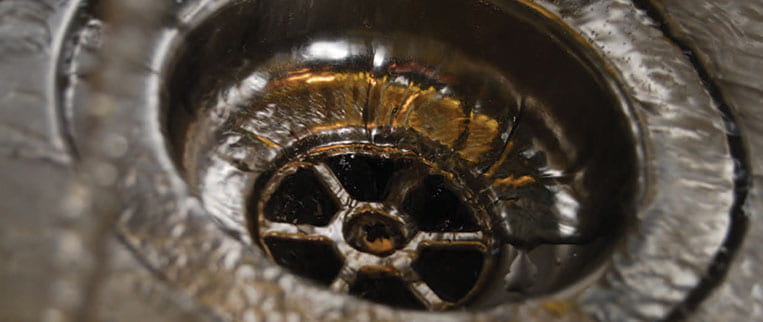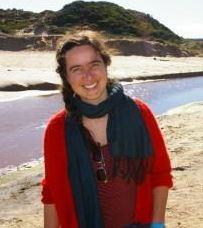We need new arrangements of life and work: a completely new economy.
— Dr Jennifer Hamilton, School of Humanities, Arts and Social Sciences
How does your domestic water use relate to a planet in crisis? Twelve months ago such a question might have seemed nonsensical, but it has quickly taken on new significance. During Armidale’s period of extreme drought conditions, those living on town water started to think consciously about their domestic water use in relation to the wider ecology. We began to rapidly adapt to and mitigate the problem in simple ways: by changing habits to reduce use. Dr Jennifer Hamilton’s research reflects the need for research to bridge the ecological and the sociological by attending to how weather and water are managed at home. Dr Hamilton identifies the ongoing significance of these connections: “Then, when citizens on Australia’s eastern seaboard were sheltering in their homes in respite from bushfire smoke, we worried that putting out the fires would use all the potable water in the country. At this time it was impossible to foresee that we were on the verge of spending even more time at home, using water in new ways again. The global pandemic is compelling those with access to a private home dwelling to shelter there for as much time as materially possible. We pass the time downloading instructions about how to wash hands to the tune of your favourite song.”
The environmental and the cultural are related, but learning how to think these things clearly and together is a challenge. “The household has always been at the centre of economic life” reflects Dr Jennifer Hamilton “indeed, the English word ‘economy’ derives from the Greek word oikos meaning ‘home’. But for reasons relating largely to the low social status of house-keeping activities and the little value awarded these activities in our economy, housework is not given the centrality in our thinking it deserves”. Dr Hamilton’s research is especially concerned with how such lowly house-keeping activities relate to one of the biggest challenges of our time: adapting to and mitigating climate change. Dr Hamilton’s research is examining whether there is a hidden movement in the home addressing the environmental crisis, and to better understand the economic, historical and cultural significance of these novel home-making activities.
One of the (many) reasons housework has been overlooked in our bigger cultural and economic analysis of climate change, argues Dr Hamilton, is because we are always thinking about the problem in an apocalyptic mode and at large scale. These anxious visions are represented in popular fictions like Mad Max: Fury Road and The Road. In Mad Max the world has dried up and a centralised authority has taken control of water, doling it out intermittently to the thirsty masses. In The Road, all authority has disappeared and everyone fends for themselves. “As the drought, bushfires and pandemic of the last few months attest, climate change will at times resemble our darkest visions of the apocalypse”, but Dr Hamilton suggests we also need to attune ourselves to a different kind of vision: “the experience of life during climate change will often be much less exciting”.
As such, her focus on banality of housework has profound ethical and political implications. Hamilton wants to find out how real people are cultivating a future different through these activities and to understand what kind of society they are imagining in the doing. “Mad Max and The Road are scary visions because they represent the complete breakdown of a particular social order” says Hamilton, “democracy in these examples is supplanted by authoritarianism, one one hand, and violent anarchism, on the other”. So, in focussing on the banal and everyday aspects of this crisis, Hamilton also sees her research as supporting the practical steps needed to build a more just and socially cohesive future at the same time.
This is not a straightforward task. “When people say climate change is an ‘existential risk to life on earth’, they mean it literally, especially now, with the drought, bushfires and pandemic. If we don’t do something, and do it soon, the conditions that make life on earth possible will be compromised and the planet’s inhabitable regions will substantially shrink. This is literally true. But action or not, there is a metaphorical existential challenge in all this too: how we understand ourselves as relating to each other, our work, the planet and the future is in flux” says Dr Hamilton. Her early research is finding that people are actively engaged in this existential reckoning and actively creating these alternative future visions.
But, if housework is a key activity to assist in adaptation and mitigation of climate change, then it is also a key component of this existential challenge. Historically, domestic work is gendered feminine and is the lowliest and least valued form of work within the economy. “This is the kind of work people seek to be liberated from”, Dr Hamilton reminds us. At the same time this work has contributed to the reproduction of the nuclear family and provided a workforce for extractive capitalism. In understanding the future of housework, Dr Hamilton’s research seeks to do so attentive to its historically marginal status and undesirability. “We need new arrangements of life and work: a completely new economy” says Dr Hamilton; “the kind of housework that contributes to this new economy is not the same kind of work from which women sought liberation”. Dr Hamilton’s most recent article on this is published Australian Feminist Studies, and addresses this foundational paradox.
The research is in its early days and so Dr Hamilton does not want to pre-empt the conclusion, but she sees the project as driven by a sense of urgency. As the drought, bushfires and pandemic have shown, the streams that once allowed for research to gradually flow into the public imagination have dried up. So, at the same time as engaging in this research, Dr Hamilton has devised a creative and community-focussed methodology to distribute information at the same time as gathering it. Dr Hamilton describes the Community Weathering Station (CoWS) as “a shelter shed, a library, a workshop, infostall and a safe space to weather climate change together”, and, going forward, a recruitment station for people Dr Hamilton will interview about housework.
For more information on this project and to attend upcoming CoWS events go to www.communityweatheringstation.net
[Banner image courtesy of ABC RN: Teresa Tan.]



